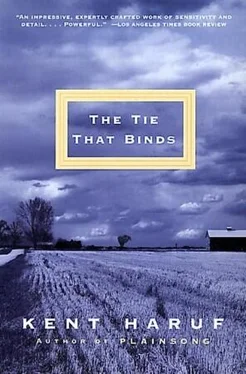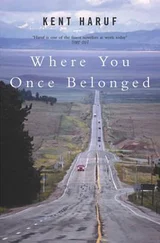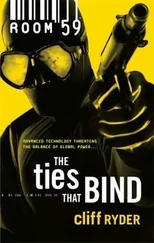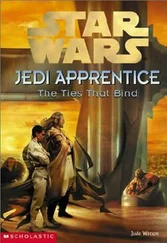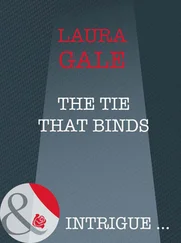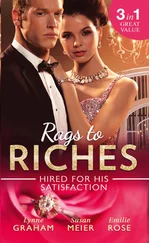Also, she went on collecting Lyman’s postcards — he was in Mobile now, now in Montgomery, then in Baltimore — and she continued to collect the bow-tied twenty-dollar bills he sent her at Christmas. The cards and money were kept in separate boxes in a dresser drawer in her bedroom. Later she would pin the postcards, picture-side out, on the walls of the living room, but she didn’t start that until the old man had died. The old man didn’t seem to remember who the blazes Lyman was when she showed him a picture of a glass building or some photograph of Robert E. Lee waving a saber from atop a marble horse. He seemed to confuse Lee with Lyman. Or, occasionally, if he did seem to recall just who Lyman was, then it only made him madder. He would spit on the floor or wet the front seat of the car. So Edith stopped showing him the postcards and kept them to herself. She was saving them.
OVER HERE we had our ruts too. My dad and mother went on tolerating one another for the duration. The separate and independent lives they lived didn’t change much even though they still ate at the same table and slept in the same bed. My mother had her church work, her circle, and she was on the school board for a term or two. But the war years were hard on her: she couldn’t keep fashionable. The shelves and racks in the Holt dress shop were empty almost always, and you couldn’t purchase a bolt of cloth to make something yourself. The army got all the good cotton and wool for uniforms.
“They take everything,” my mother said. “And all that material is just going to get soiled. Or perforated.”
So, once during those years, she and Mrs. Schmidt, who was the wife of Holt’s one doctor after Marcellus Packer died of a stroke in the tavern, drove in my mother’s car to shop in the big stores in Denver, and they managed to find a pair of stockings apiece and a few dresses. But the trip to Denver turned out to be a one-time affair, a single charge. When Doc Schmidt found out where his gas coupons had gone he was not exactly ecstatic. If nothing else he stopped leaving his coupons out in the open on his dresser top. So what I remember of the hurried-up victory celebration on the football field in 1945—the band played marches, I remember; the mayor spoke and there were preachers on the wood platform — all that is mixed up with the memory of my mother’s anticipation of stocked shelves again, dresses and hats. “Thank God,” she said, when we heard about the armistice on the radio. And I don’t guess the only thing she had in mind was the end of killing. But then I don’t suppose she was the only one who felt that way, either. Maybe she was a little more honest, that’s all. Because to do her justice, it was what she had to live on.
In different ways my dad suffered over the war, too. There was that bad business with Edith and the tractor because of the war — I mean Lyman would never have managed to jump up and run off if there hadn’t been a war — but there was also the fact that my dad had spent enough nights drinking and fighting to have a pretty good idea of what men could do to one another for no reason; and now with the war they had a reason, and they were actually being trained and encouraged to do more than just hit one another in the face. So, while I can’t say much of that touched me hard, I believe it made my dad sick. He hated it. And sometime back I think I said he wasn’t a man who laughed a lot — well, now he didn’t seem to laugh at all. On the other hand, to do him justice too, he must have made some money during those years. The cattle market stayed steady with the increased need for meat, and he went on castrating calves and experimenting with seed bulls and hauling fat cattle to the sale barn. I suppose he learned to live with the connection between his raising beef and all that blood being spilled in Europe.
THAT LEAVES ME. And like it or not I can see you’re going to have to hear some more about Sanders Roscoe. It’s the price you pay for asking questions about Edith Goodnough.
So. I told you I was in high school. Well, I finished high school. I graduated from Holt County High in 1946— hell, I even went to college. But during this period I’ve been talking about I was still in high school, still trying to play some kind of halfback while beside me there was this big fullback who was so good that he was going to make unanimous all-conference and second team all-state. That was Bud Sealy, of course, and he was all right then. He hadn’t begun to show any signs of becoming a sheriff or a son of a bitch yet. No, he was just a big tough kid with a fast car. Only, looking back on it now, I suppose it might have been then that he began to develop a habit for being hard in the middle of things, develop a knack for taking advantage of any opening, never mind whether that opening was on the football field or between the legs of some girl, or, like later, right on the front page of some damn big city newspaper. But I might be pushing things by saying that. That’s just hindsight. I might be trying to force square pegs into round holes, because if what I’ve just suggested is true, none of us saw it. I sure as hell didn’t see it. At the time I was a lot more interested in trying to get Doris Sweeter to allow me to see more of her, to let me hold something more of hers than just her sweaty hand.
Then, like Lyman, I left. I went to college at A&M in Fort Collins for a while. It was my mother’s idea as much as anything, though I wasn’t opposed. She wanted a son with a college diploma, and what I wanted was to get away from home. My dad agreed to it too; he thought I might be capable of learning something. Well, I don’t know that I learned a damn thing that matters, at least not of the sort he had in mind — though I can’t be sure of that now either. He probably knew all along.
Anyway, Fort Collins was a hell of nice little town then; it’s developed middle-age spread since — like the rest of us, it has some heart trouble. But in the four years I was there it was still the sort of town that even a green kid from Holt County could survive in. I mean it provided me with the kind of trouble that, once I got out of it, left me only a little bruised and scratched up but not a lot smarter than I was when I first got there. It wasn’t the kind of trouble or sidewalk show, say, that any seven-year-old kid from any slum sees every day and survives if he’s lucky but ends up changed forever afterwards even if he does. No, I just had some sore places to show for my trouble. It didn’t change the way I see things. It took Holt County to accomplish that.
But at least I got away from home. For a while I managed to get shut of Holt County. It didn’t mean anything, though; none of it did. It was just college. I didn’t even graduate. There was this little matter of chemistry: they required people studying animal husbandry to pass chemistry, and I never did. I tried it twice too. But somehow the theory of chemical formulas, even the logic of chemical elements, escaped me. How could anybody be so damn sure that if you added two parts of hydrogen to one part of oxygen it always came out water? The combination of things never seemed that certain to me; things weren’t that simple, not even with elements as basic as water. So I never passed chemistry, and after four years I still failed to do the one thing that might have satisfied at least my mother. Her son didn’t receive a college diploma.
You understand, though, that I was still about half willing to return for a fifth year and a third try at chemistry; I hadn’t quite finished playing the jackass in Fort Collins; and then while I was making my mind up to it the bottom fell out. Matters caught up with me in the summer of 1950. I began to learn those things that my years of college couldn’t teach me, hadn’t in fact even touched. I was home again.
Читать дальше
